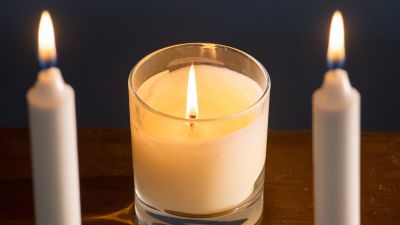Explainer
What are planned energy blackouts and what can be done to avoid them?

The National Grid has warned that there could be planned blackouts this winter if gas power plants are not able to keep running due to the energy crisis.
The electricity systems operator said it is still unlikely - but winter could see the first planned blackouts, which the grid calls rota load shedding, since the 1970s.
In what it called an “unlikely” scenario, the National Grid Electricity System Operator (ESO) said that households and businesses might face planned three-hour outages to ensure that the grid does not collapse.
“In the unlikely event we were in this situation, it would mean that some customers could be without power for pre-defined periods during a day – generally this is assumed to be for three-hour blocks,” the ESO said.
Prime Minister Liz Truss on Thursday assured that the UK “can get through the winter,” saying the UK has “good energy supplies”.
However, she stopped short of explicitly offering a guarantee of no blackouts, in response to concerns from the body that oversees the country's electricity grid.
Why might planned blackouts take place?
In the face of the “challenging” winter facing European energy supplies amid Russia’s invasion of Ukraine, the National Grid is planning for what would happen if there were no imports of electricity from Europe.
To tackle a loss of imports from France, Belgium and the Netherlands, there are two gigawatts of coal-fired power plants on standby to fire up if needed to meet demand.
National Grid Gas Transmission separately said that while gas demand will increase this winter, it expects Britain to be able to get enough gas to take it through a “Beast from the East” scenario or a long, cold winter.
Engineers working on the grid need to make sure it is “balanced” at all times.
This means that the amount of electricity pouring into the grid from power plants, wind farms and other energy sources should match the amount being taken out by households and businesses at any given time.
So if there is ever an imbalance where demand is higher than supply - or supply is higher than demand - it can cause major breakdowns in the grid.
That could cause actual physical damage to the grid, which could take days to repair.
If the engineers know there will not be enough supply to match demand, sometimes they need to reduce demand by using planned blackouts to avoid major damage.
Why might planned blackouts be necessary this winter?
Britain has one of the most reliable power networks in the world and unless cables are cut by storms or other accidents power outages are rare.
But this winter, gas generators might not be able to get enough gas to keep running.
The grid said that if this happens - which it has assured it still thinks is “unlikely” - then it might have to deliberately cut power to some households and businesses.
Who would get cut off first?
If the National Grid has to cut off some parts of the country, it will issue a warning to the local and regional distributors saying how much demand needs to be cut.
It will be up to these so-called distribution network operators to decide who gets cut off and who does not.
The government could also step in to ration peoples’ energy use or advise them to use less - similar to this summer's regional hosepipe bans - but so far it has ruled this out.
Is there anything energy consumers can do to help avoid blackouts?
People are being encouraged to sign up with their electricity supplier to a scheme which will give them money back on their bills to shift their use of power away from times of high demand, to help prevent blackouts.
Households tend to consume a fifth of their daily energy between 4pm and 7pm, according to data from Ovo Energy.
The supplier on Thursday said its customers could save £100 if they signed up to use energy at off-peak times.
In addition, larger businesses will be paid for reducing demand, for example by shifting their times of energy use or switching to batteries or generators in peak times.
Want a quick and expert briefing on the biggest news stories? Listen to our latest podcasts to find out What You Need To Know.